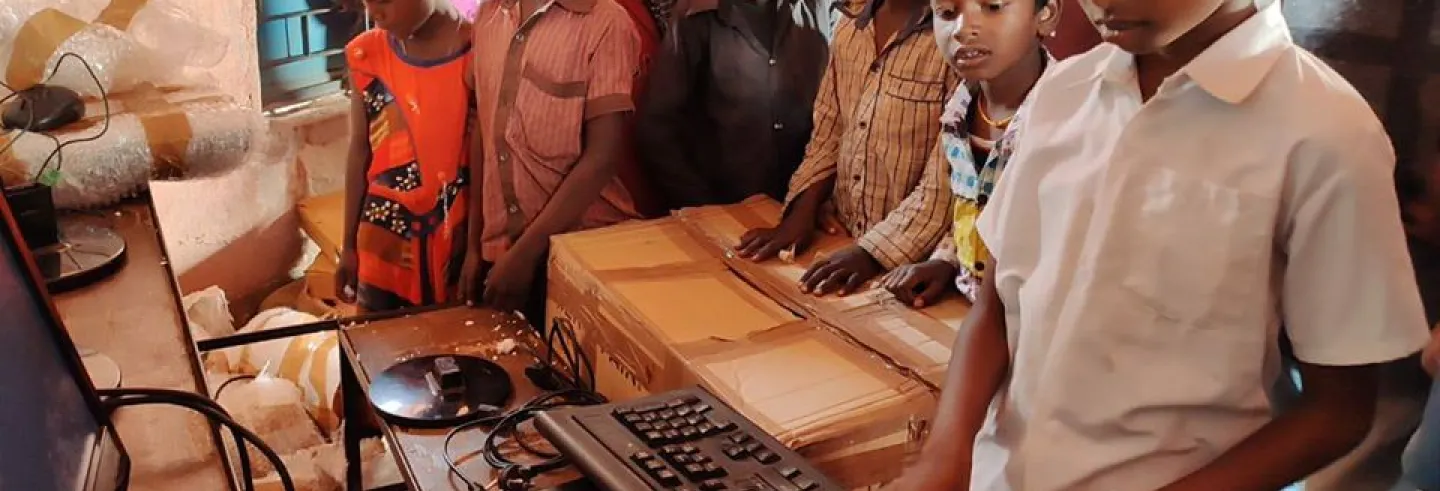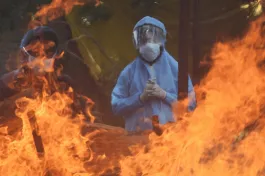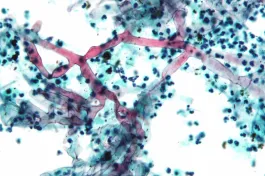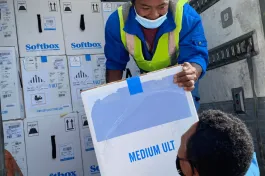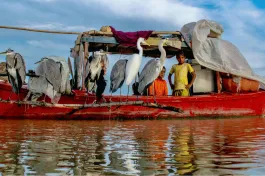Indigenous communities in India present the highest educational dropout rates, along with other socio-economic deprivations. Scholars have long argued that institutional learning for indigenous students produce cultural alienation, as schooling is a way for them to be co-opted into the mainstream. As a solution there have been continuous efforts to make schooling more culturally relevant for indigenous students, encouraging their mother tongue and community knowledge. Despite policy recommendations though, not much has changed in the delivery of the education systems for indigenous children at the grassroots level.
However, in the last few years, a fundamental development in learning has happened outside of schools, mediated by the advent of the internet and cheap smartphones in rural spaces. Rural indigenous youth in the age group of 16 and above are populating the social media space in rising numbers. School dropouts, who struggle to read from school books, are passionately exchanging messages on Facebook.
How is it that young people in rural areas who would end up struggling in standardised tests are doing well in such spaces?
This is so because literacy on digital platforms like Facebook functions differently.
Every other post on social media uses more than one form of expression: text, emoticons, symbols, images, animation, videos. Additionally, people often use multiple languages simultaneously to communicate on social media. These phenomena, known to scholars as multimodality and translanguaging respectively, not just aid literacy development but transform the conception of literacy itself. Several marginal languages have been given a new lease of life due to their use on digital media.
Traditionally, and more so within educational institutions, literacy is taken to be a rigid monolingual cognitive skill to be inculcated into the ‘illiterate’ through specific drills. However, scholars of digital literacy argue literacy to be an act of innovation and in some cases a form of resistance.
[O]ne can see in them how indigenous food systems is finding an unapologetic place in these compositions. From denying and hiding their food practices, some students are publicly asserting them.
During the lockdown, at the Sinchan Education and Rural Entrepreneurship Foundation, we started an online language learning project in Bihar, called Kurumutu. It is a Santhali word that means ‘trying something new’. The project virtually connected youth across the world with rural indigenous youth, almost on a one-to-one basis for language learning in an ambience of intimacy and cultural exchange. What we tried was an English language pedagogy that encourages students to write, speak, listen and read into counter-stories —narratives constructed from the margins that hold the potential to subvert the ‘mainstream view’ which is taken to be ‘normal’ or even ‘natural’. The students who engaged in counter-storytelling under this project were Santhal youth aged 17 to 21 from rural Bihar.
Project Kurumutu acknowledged the socio-economic status and aspiration for English and responded to it with the pedagogy of counter-stories enacted on digital forums like Facebook. Out of the many possible generative themes for counter-storying, we chose the topic of food. Food habits are associated with caste and curricular chapters on nutrition and balanced diet fail to recognise indigenous food practices which could help in resolving the health and nutrition crisis in the region. According to the NFHS-4 India report, close to half of tribal children under the age of 5 years are stunted or underweight. More than a quarter are wasted.
Growing evidence suggests that supporting the consumption of traditional foraged foods could help achieve food security and nutritionally diverse sustainable diets. But such crops are threatened by environmental degradation. Their consumption dissuaded by social and educational narratives of such foods being ‘backward’. Thus, writing counter-stories on food is a way not just to learn English, but also to generate a collective reflection on the ecological and nutritional skills of the community.
To begin, the students reflected on popular and unpopular foods and how perceptions and dominant stories on food are formed. As prompts for discussion, they would use videos on changing food styles or articles that talk about declining indigenous foods. Often pictures of local food and its collection were generated by students themselves and used in presentations. Eventually, the mentors encouraged students to produce Facebook posts as assignments, leveraging on multimodality and the multiple languages they know. Once the idea of telling their stories from their vantage point emerged, students started experimenting with their Facebook posts. Below I provide some examples of the posts students made in the first phase, where they are still learning and experimenting with the form.






This is a work in progress. The posts I share are fledging attempts. Yet one can see in them how indigenous food systems is finding an unapologetic place in these compositions. From denying and hiding their food practices, some students are publicly asserting them. For instance, one post frames ‘rat hunting’ as a routine activity, centring Santhal culture and food. The author normalises ‘rat hunting’ by asking her Facebook friends if they have ever done this, connoting the desired nature of this activity. This is very different from the usual mainstream perspective that either exoticises these activities or presents them as repulsive.
Other posts reflected on the disappearance of traditional foods, some celebrated the taste of local food, some highlighted its significance in situations when markets closed during the Covid-19 pandemic, and some talked about food in relation to the culture of foraging and childhood.
We must not forget that counter-stories are eventually stories, meant to include and submerge all readers, rather than serving as a tool for antagonistic identity politics.
Educator John Dewey once remarked that there was a difference between “having to say something” and “having something to say”. The difference is of desire. By centring stories and voices that are often marginalised in traditional classrooms, the counter-storytelling approach invokes the desire to communicate. It works on how to say those things in ‘perfect English’ only later. In our project, this approach enhances a sense of belonging, agency, and creativity for indigenous youth. It responds to to the huge aspiration amongst rural youth for learning English, even as it engages with the complexity of languages (and associated people, attitudes and knowledge) existing in a socio-economic hierarchy, as well as with the loss and endangerment of several indigenous languages.
Language is intimately associated with thinking, communicating and eventually persuading others. The peak of language capacities is not in simply effective usage, but rather in giving language to that which is hitherto unsaid. If the apogee of science is to discover new patterns, the apogee of language use is to produce counter-stories and use them as a platform to engage with marginal cultures and world-views.
Counter-stories may imply a simplistic binary of the oppressor and the oppressed, as if the originating intention is to counter, to react. We must not forget that counter-stories are eventually stories, meant to include and submerge all readers, rather than serving as a tool for antagonistic identity politics. One must learn the nuances of storytelling and persuasion that help ‘outside’ people to engage with one’s experiences. Teachers have to carefully curate these learning spaces through a lot of iterations, errors and reflections on what is being written and re-written. They should engage with silences and stories that resist being written, spoken, heard, or read.


